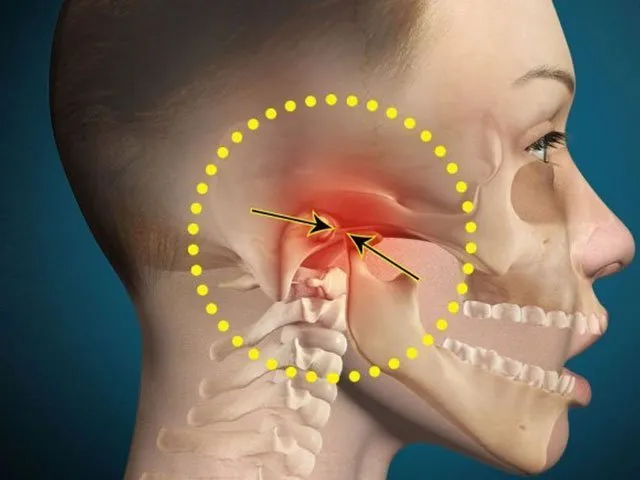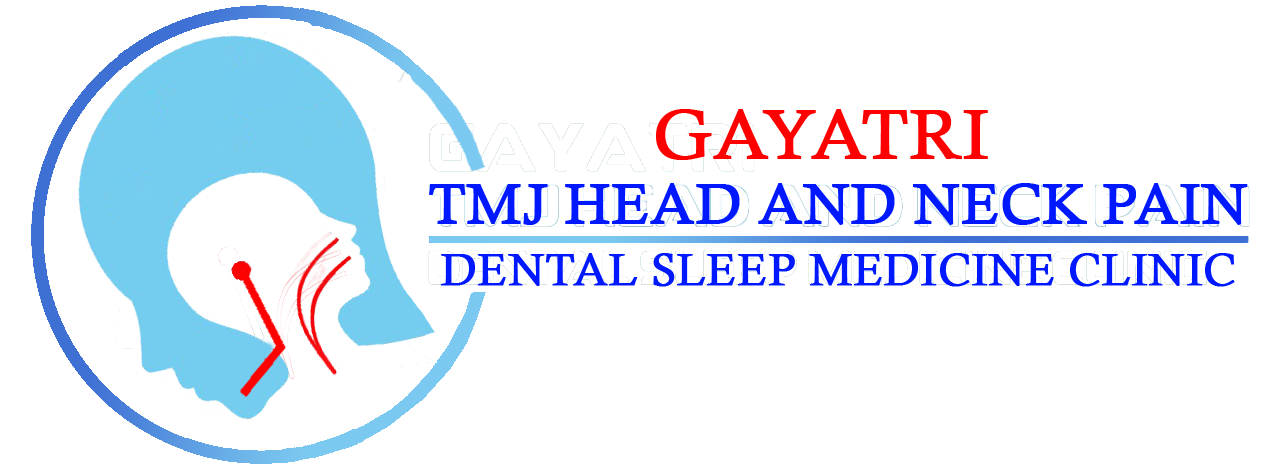The temporomandibular joint (TMJ) acts like a sliding hinge, connecting your jawbone to your skull. You have one joint on each side of your jaw. TMJ disorders — a type of temporomandibular disorder or TMD — can cause pain in your jaw joint and in the muscles that control jaw movement.
The exact cause of a person’s TMJ disorder is often difficult to determine. Your pain may be due to a combination of factors, such as genetic conditions or jaw injury. Some people who habitually clench or grind their teeth and can also develop TMJ disorders.
In most cases, the pain and discomfort associated with TMJ disorders is managed by nonsurgical treatments. We offer conservative treatments with oral appliances and other techniques to heal the joint and alleviate pain. We believe in using minimum medications. Surgery is typically a last resort if at all needed, and most of our patients are treated without any dental or occlusal corrections or surgeries.

Signs and symptoms of TMJ disorders may include:
- Pain or tenderness of your jaws
- Pain in one or both of the temporomandibular joints
- Aching pain in and around your ear
- Difficulty chewing or pain while chewing
- Aching facial pain
- Locking of the joint, making it difficult to open or close your mouth
- Clicking sound or grating sensation when you open your mouth or chew.
Causes
The temporomandibular joint combines a hinge action with sliding motions. The parts of the bones that interact in the joint are covered with cartilage and are separated by a small shock-absorbing disk, which normally keeps the movement smooth.
Most common causes of pain in TMJ disorders are :
- The disk erodes or moves out of its proper alignment
- The joint’s cartilage is damaged by arthritis
- The joint is damaged by a blow or other impact
Risk factors
- Factors that may increase the risk of developing TMJ disorders include:
- Various types of arthritis, such as rheumatoid arthritis and osteoarthritis
- Jaw injury
- Long-term (chronic) grinding or clenching of teeth
- Certain connective tissue diseases that cause problems that may affect the temporomandibular joint
Diagnosis
Dr Hemant soni will discuss your symptoms and examine your jaw. He will probably:
- Listen to and feel your jaw when you open and close your mouth
- Observe the range of motion in your jaw
- Press on areas around your jaw to identify sites of pain or discomfort
You may also need following tests:
- Dental X-rays to examine your teeth and jaw
- CT scan to provide detailed images of the bones involved in the joint
- MRI to reveal problems with the joint’s disk or surrounding soft tissue
If you are suffering from any of these issues, you can book an appointment with Dr Hemant Soni who is TMJ Orofacial [Head and Neck] pain, Dental sleep medicine specialist, He can evaluate all medical and dental causes that can create pain in the region, and discuss possible treatments for your problem.
Request an Appointment
Book your appointment
